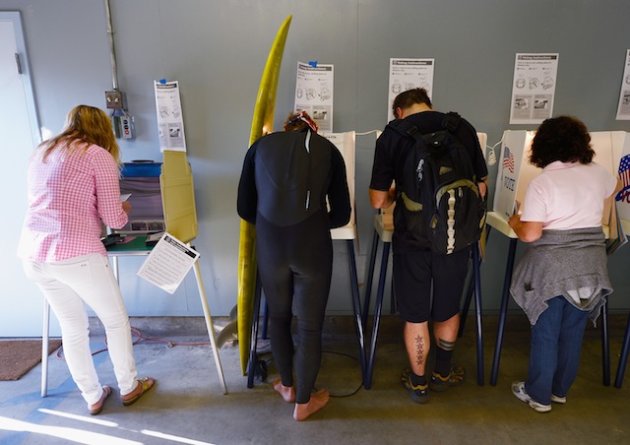'},"otherParams":{"t_e":1,".intl":"US"},"events":{"fetch":{lv:2,"sp":"7665149","ps":"LREC,MON","npv":true,"bg":"#FFFFFF","em":escape('{"site-attribute":"_id=\'6fc6e2e9-b163-3060-b8dd-69df1e64d440\' rs=\'lmsid:a0770000002GZ5iAAG\' ctype=\'News\' ctopid=\'1499989;1550500;2299500;1507989;1506989;1542500;1507489\' can_suppress_ugc=\'1\' content=\'no_expandable;ajax_cert_expandable;\' ADSSA"}'),"em_orig":escape('{"site-attribute":"_id=\'6fc6e2e9-b163-3060-b8dd-69df1e64d440\' rs=\'lmsid:a0770000002GZ5iAAG\' ctype=\'News\' ctopid=\'1499989;1550500;2299500;1507989;1506989;1542500;1507489\' can_suppress_ugc=\'1\' content=\'no_expandable;ajax_cert_expandable;\' ADSSA"}')}}};var _createNodes=function(){var nIds=_conf.nodeIds;for(var i in nIds){var nId=nIds[i];var dId=_conf.destinationMap[nIds[i].replace("yom-","")];n=Y.one("#"+nId);if(n)var center=n.one("center");var node=Y.one("#"+dId);var nodeHTML;if(center && !node){nodeHTML=_conf.nodes[nId];center.insert(nodeHTML);};};};var _prepareNodes=function(){var nIds=_conf.nodeIds;for(var i in nIds){var nId=nIds[i];var dId=_conf.destinationMap[nIds[i].replace("yom-ad-","")];n=Y.one("#"+nId);if(n)var center=n.one("center");var node=Y.one("#"+dId);if(center && node){center.set("innerHTML","");center.insert(node);node.setStyle("display","block");};};};var _darla;var _config=function(){if(YAHOO.ads.darla){_darla = YAHOO.ads.darla;_createNodes();};};var _fetch=function(spaceid,adssa,ps){
if (typeof(ps)!='undefined')
_conf.events.fetch.ps = ps;if(typeof spaceid != "undefined") _conf.events.fetch.sp=spaceid;adssa = (typeof adssa != "undefined" && adssa != null) ? escape(adssa.replace(/\"/g, "'")) : "";_conf.events.fetch.em=_conf.events.fetch.em_orig.replace("ADSSA", adssa);if(_darla){_prepareNodes();_darla.setConfig(_conf);_darla.event("fetch");};};Y.on("domready", function(){_config();});;var that={"fetch":_fetch,"getNodes":_conf.nodes,"getConf":_conf};return that;}();/* Backwards compatibility - Assigning the latest instance to the main fetch function */YUI.PhotoAdsDarla.fetch=YUI.PhotoAdsDarla.photoslightboxdarla.fetch;
});
Y.later(10, this, function() {YAHOO.namespace('Media.Social').Lightbox = {};
});
Y.later(10, this, function() {Y.Media.Article.init();
});
Y.later(10, this, function() {new Y.Media.AuthorBadge();
});
Y.later(10, this, function() {new Y.Media.Branding();
});
Y.later(10, this, function() {Y.on("load", function () {
YUI.namespace("Media.SocialButtons");
var instances = YUI.Media.SocialButtons.instances || [],
globalConf = YAHOO.Media.SocialButtons.conf || {},
vplContainers = [];
Y.all(".ymsb").each(function (node) {
var id = node.get("id"),
conf = YAHOO.Media.SocialButtons.configs[id],
instance;
if (conf) {
instance = new Y.SocialButtons({
srcNode: node,
config: Y.merge(globalConf, conf.config || {}),
contentMetadata: conf.content || {},
tracking: conf.tracking || {}
});
vplContainers.push(
{
selector: "#" + id,
callback: function(node) { instance.render(); instance = conf = id = null; }
});
if (conf.config && conf.config.dynamic) {
instances.push(instance);
}
}
});
Y.Global.Media.ViewportLoader.addContainers(vplContainers);
YUI.Media.SocialButtons.instances = instances;
});
});
Y.later(10, this, function() {if (!Y.Media) {
return;
}
Y.Media.boba_lightbox_module_targets = Y.Media.boba_lightbox_module_targets || {};
Y.Media.boba_lightbox_module_configs = Y.Media.boba_lightbox_module_configs || {};
Y.Media.boba_lightbox_module_dataset = Y.Media.boba_lightbox_module_dataset || {};
Y.Media.boba_lightbox_module_whitelist = Y.Media.boba_lightbox_module_whitelist || {};
Y.Media.boba_lightbox_module_targets['lightboxfb11463e5e719400ca18bc98b9778ce3'] = {"lightboxId":"cdb195a8f28db8cb968141f778323a6b","pivotId":"94bf589f-afdb-3d01-8984-fc68fffb427d"};
Y.Media.boba_lightbox_module_dataset['cdb195a8f28db8cb968141f778323a6b'] = {"spaceid":"7665149","total":1,"photoby":"Photo By","xhrtype":"slideshow","videoconf":{"autoplay":true,"continuousPlay":true,"mute":false,"volume":"1.00","lang":"en-US","site":"news","region":"US","jurisdiction":"US","YVAP":{"accountId":"145","playContext":"default"},"pageSpaceId":"7665149","comscoreC4":"US News","comscoreC6":"","showEmbedCode":true,"showShareUrl":true,"expName":"MediaArticleRelatedLightbox","expType":"inline","apiEnv":"prod"},"slideshow_id":null,"slideshow_title":null,"slideshow_title_baked_html":null,"slideshow_desc":null,"slideshow_rev":null,"slideshow_plink_vita":null,"photos":[{"type":"image","url":"http:\/\/l2.yimg.com\/bt\/api\/res\/1.2\/mx7h0ZkHqtbzpA0Cgf6cbA--\/YXBwaWQ9eW5ld3M7Zmk9aW5zZXQ7aD0zMTI7cT03OTt3PTQ1MA--\/http:\/\/media.zenfs.com\/en_us\/News\/Reuters\/2012-11-07T171831Z_2_CBRE8A61BIA00_RTROPTP_2_CTECH-US-APPLE-SHARES.JPG","width":450,"height":312,"uuid":"94bf589f-afdb-3d01-8984-fc68fffb427d","caption":"The Apple logo hangs in a glass enclosure above the 5th Ave Apple Store in New York, September 20, 2012. Apple's iPhone 5 goes on sale tomorrow. REUTERS\/Lucas Jackson","captionBakedHtml":"
Y.Media.boba_lightbox_module_configs['cdb195a8f28db8cb968141f778323a6b'] = {"spaceid":"7665149","ult_pt":"story-lightbox","darla_id":"","images_total":0,"xhr_url":"\/_xhr\/related-article\/lightbox\/?id=6fc6e2e9-b163-3060-b8dd-69df1e64d440","xhr_count":20,"autoplay_if_first_item_is_video":true};
});
Y.later(10, this, function() {new Y.Media.RelatedArticle({count:"2",start:"1",
mod_total:"10", total:"0",
content_id:"6fc6e2e9-b163-3060-b8dd-69df1e64d440",
spaceid:"7665149",
related_count:"-1"
});
});
Y.later(10, this, function() {(function(d){
d.getElementsByTagName('head')[0].appendChild(d.createElement('script')).src='http://d.yimg.com/oq/js/csc_news-en-US-core.js';
})(document);
});
Y.later(10, this, function() {
if(!("Media" in YAHOO)){YAHOO.Media = {};}
if(!("ugcrate" in YAHOO.Media)){YAHOO.Media.ugcrate = {};}
if(!("Media" in Y)){Y.namespace("Media");}
YAHOO.Media.ugcrate.ratings_80e1462de90a7a0d48e45818b4c420e4 = new Y.Media.UgcRate({"context_id":"5c45fbb3-cdb2-467d-ac33-5d2ab49dd099","sCrumb":"","containerId":"yom-sentimentrate-80e1462de90a7a0d48e45818b4c420e4","rateDimensions":"d1","appLang":"en-US","sUltSId":"7665149","sUltProperty":"news-en-US","sUltCampaign":"","sUltPlatform":"ugcwidgets","sUltIntl":"US","sUltLang":"en-US","selfPageUrl":"http:\/\/news.yahoo.com\/apples-shares-slide-4-percent-five-month-low-170604771--sector.html?_esi=0","artContentId":"6fc6e2e9-b163-3060-b8dd-69df1e64d440","sUltQstnTxt":"Which size tablet would you prefer?","artContentTitle":"Apple\\'s shares slide 4 percent to five-month low","artContentDesc":"SAN FRANCISCO (Reuters) - Shares of Apple Inc slid almost 4 percent on Wednesday to a five-month low, outpacing the U.S. stock market\\'s post-U.S. election losses, and slipping into bearish territory. Stock in the world\\'s most valuable technology company has dropped more than 20 percent from a record high in September, entering what the market recognizes as bearish ground. It hit a low of $558.38 on Wednesday, before trading down 3.5 percent at $559.74 around midday. ...","sUltBucketId":"test1","sUltSection":"sentirating","sUltBeaconUrl":"","sUltRecordPageviews":"1","sUltBeaconEnable":"1","serviceUrl":"\/_xhr","publisherContextId":"","propertyId":"2fcd79b5-b3a3-333e-b98e-722536a6698f","configurationId":"435db9ee-c55e-3766-b20d-c8ad3ff889d1","graphId":"","labelLeft":"Smaller works for me","labelRight":"Bigger is better","labelMiddle":"","itemimg":"http:\/\/l.yimg.com\/a\/i\/ww\/met\/yahoo_logo_us_061509.png","selfURI":"","aggregateRatingCount":"38014","aggregateReviewCount":"0","leftBlocksNum":"21987","rightBlocksNum":"16024","leftBlocksPerCent":"58","rightBlocksPerCent":"42","ugcrate_apihost":"api01-us.ugcl.yahoo.com:4080","publisher_id":"news-en-US","yca_cert":"yahoo.ugccloud.app.trusted_proxies","timeout_write":"5000","through_proxy":"false","optionStats":"{\"s1\":3444,\"s2\":1635,\"s3\":4066,\"s4\":9677,\"s5\":3165,\"s6\":16024,\"s7\":0,\"s8\":0,\"s9\":0,\"s10\":0}","l10N":"{\"FIRST_TO_READ\":\"You are first to read this. Share your feelings and start a conversation.\",\"SHARE_YOUR_FEELINGS\":\"You too can share your feelings and start a conversation!\",\"HOW_YOUR_FRIENDS_THINK\":\"Thank you for sharing your feeling on this article!\",\"PRE_SHARE_MSG\":\"Your Facebook friends on Yahoo! can see how you responded. To share your response on Facebook, click on the Facebook share option.\",\"START_THE_CONVERSATION\":\"Start the Conversation\",\"THANKS_FOR_SHARING\":\"Sure, that's how you feel... But what do your friends think?\",\"POLL_HEADER\":\"SOCIAL SENTIMENT\",\"SERVER_ERROR\":\"Oops there seems to be some error, please try again later\",\"LOADING\":\"Loading...\",\"SHARE_AFTER_COMMENT\":\"Your response has been shared on Facebook.\",\"UNDO\":\"Undo\",\"UNIT_PEOPLE\":\"People\",\"NUM_PEOPLE_DISAGREE\":\"disagree with your opinion.\",\"READ_MORE_TEXT\":\"Read what they have to say.\",\"SLIDER_THUMB_WORDING_BEFORE_VOTING\":\"WHAT DO YOU THINK?\",\"SLIDER_THUMB_WORDING_VERB_BEFORE_VOTING\":\"DRAG\",\"SLIDER_THUMB_WORDING_THANKS_VOTING\":\"Thanks for voting\",\"NUM_PEOPLE_ANSWERED\":\" 38,014 people have responded\",\"ONE_PERSON_ANSWERED\":\" 1 person has responded. Your response will be seen by your Facebook friends on Yahoo!\",\"TWO_PEOPLE_ANSWERED\":\" 2 people have responded. Your response will be seen by your Facebook friends on Yahoo!\",\"NUM_PEOPLE_ANSWERED_AND_SHARED\":\" 38,014 people have responded. Your response will be seen by your Facebook friends on Yahoo!\",\"NUM_PEOPLE_RATED__s1\":3444,\"NUM_PEOPLE_RATED__s2\":1635,\"NUM_PEOPLE_RATED__s3\":4066,\"NUM_PEOPLE_RATED__s4\":9677,\"NUM_PEOPLE_RATED__s5\":3165,\"NUM_PEOPLE_RATED__s6\":16024,\"NUM_PEOPLE_RATED__s7\":0,\"NUM_PEOPLE_RATED__s8\":0,\"NUM_PEOPLE_RATED__s9\":0,\"NUM_PEOPLE_RATED__s10\":0}","fbconfig":"{\"message\":\"undefined\",\"name\":\"undefined\",\"link\":\"\",\"source\":\"\",\"picture\":\"http:\\\/\\\/l.yimg.com\\\/a\\\/i\\\/ww\\\/news\\\/2011\\\/09\\\/27\\\/yahoo-tc.jpg\",\"description\":\"\",\"captionLeft\":\"undefined\",\"captionRight\":\"undefined\",\"app_id\":\"196660913708276\",\"redirect_uri\":\"\\\/_xhr\\\/ugcratefbredirect\\\/\"}","template_id":"LONG_SLIDER_SOUTH","obj_id":"ratings_80e1462de90a7a0d48e45818b4c420e4","opt_count":"6","opt_color1":"","opt_color2":"","template_html":"




